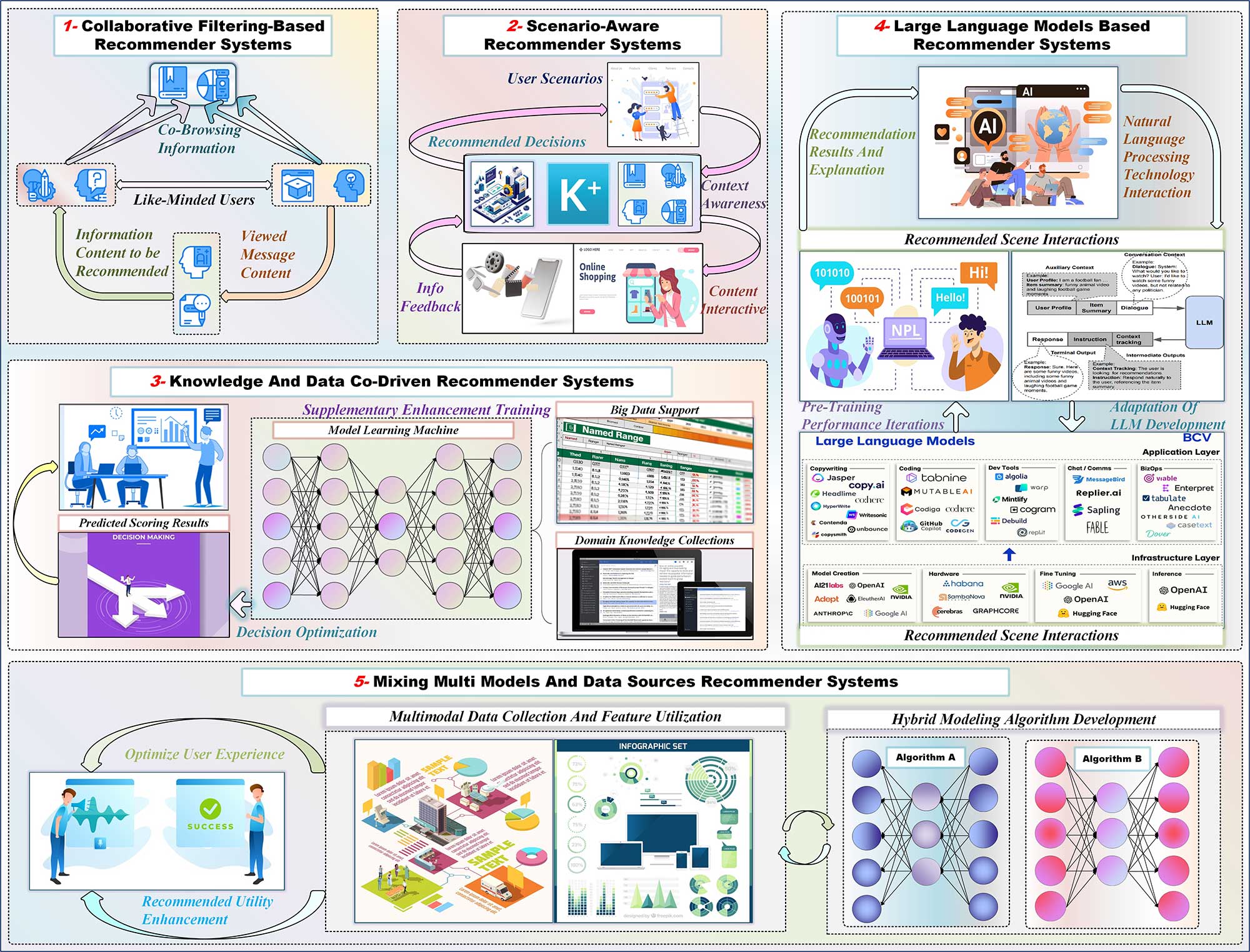IECE Transactions on Sensing, Communication, and Control | Volume 1, Issue 1: 30-51, 2024 | DOI: 10.62762/TSCC.2024.898503
Abstract
The proliferation of Recommender Systems (RecSys), driven by their expanding application domains, explosive data growth, and exponential advancements in computing capabilities, has cultivated a dynamic and evolving research landscape. This paper comprehensively reviews the foundational concepts, methodologies, and challenges associated with RecSys from technological and social scientific lenses. Initially, it categorizes personalized RecSys technical solutions into five paradigms: collaborative filtering, scenario-aware, knowledge & data co-driven approaches, large language models, and hybrid models integrating diverse data sources. Subsequently, the paper analyses the key challenges and fut... More >
Graphical Abstract

